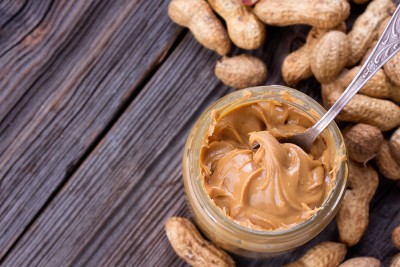#100 8 Nutrients to Prevent Cancer and Slow Aging
May 9th, 2015 by Dr. John DayPodcast: Play in new window | Download
Subscribe: RSS
8 Nutrients to Prevent Cancer and Slow Aging
In 1744 all of England was busy discussing George Anson’s tragic sea voyage around the world. Anson had set sail in 1740 with a crew of 1,854 only to return four years later with just a crew of 188 people. What went wrong? How did 1,666 people die from this around the world sea voyage?
Intuition would tell you that most of the people probably died from pirates, enemy ships, or even a shipwreck. Interestingly, what killed most of the people on this ship was scurvy. Indeed, the number one cause of death on the sea, prior to 1753, was not from pirates or war but rather malnutrition from a lack of vitamin C.
Malnutrition is something that only occurs in impoverished third world countries, right? Wrong. Despite our overabundance of calories and the obesity epidemic in the U.S., most Americans suffer from malnutrition.
If you suffer from a deficiency in any of the 8 nutrients I am going to discuss in this article, you could be putting your DNA at risk for developing cancer cells or other chronic diseases leading to a premature death.
How Do You Know if You Have a Nutrient Deficiency?
Certainly, you could be tested for many different essential nutrients to see if you have enough for optimal health. The problem is that many of the commercially available tests may not be accurate. For example, the standard magnesium blood test does not adequately reflect the body’s store of this important nutrient.
Certainly, if you get sick easy or heal slowly then you probably have a nutrient deficiency. Likewise, if you have always had troubles losing weight, or you are hungry all the time, then there is also a good chance you are deficient in a key nutrient as well. Indeed, hunger may be our body’s signal that it is lacking an essential nutrient to carry out its necessary life functions.
The Triage Theory of Cancer and Aging
Nearly 20 years ago during my cardiology training at Stanford University our student loans were coming due. As Jane and I had just finished our graduate studies, we were deep in debt from the costs of these private universities. To survive financially, I had to “moonlight” by working as an emergency room physician at nights and on the weekends during my cardiology training.
In the emergency room the most important thing to learn is how to properly triage patients. In other words, the emergency room team needs to quickly determine who needs emergent treatment and who can wait.–Who gets admitted to the hospital and who is sent home to follow up with their regular physician. Lives depend on properly triaging the life-threatening from the minor medical problems.
The same is true with our bodies. Our body is a complex structure that must perform a nutritional “triage” every day. One such example of the triage theory of cancer and aging is vitamin K. This theory is championed by the legendary scientist, Dr. Bruce Ames of U.C. Berkley.
Vitamin K is required for blood to clot properly. The body will do everything it can to ensure that we have enough vitamin K to prevent us from life-threatening bleeding. If our dietary intake of vitamin K is compromised then everything available will be used to prevent bleeding rather than converting vitamin K1 to vitamin K2 which may prevent heart disease and osteoporosis.
This “triage” allows us to escape life-threatening bleeding now while sacrificing future health problems from heart disease and osteoporosis. The same may be true of the other essential nutrients. To keep us alive now, our bodies may put us at risk for cancer and premature aging later if we suffer from nutritional deficiencies. Clearly, if we want to prevent cancer and slow the aging process we must ensure we have all the essential nutrients our bodies need.
8 Nutrients to Prevent Cancer and Slow Aging
According to the Triage Theory of cancer and aging, if we are deficient in any nutrients the body will favor survival over preventing future damage to our DNA which could lead to cancer cells and premature aging. Our bodies are constantly turning over. For example, every 2-3 days we grow new cells that line our intestines and every 2-3 weeks we have completely new skin.
As part of this turn-over process, cells are constantly dividing. As part of each cell division, our DNA, which is our genetic blue print, must be copied perfectly. Any mistakes could lead to cancer or premature aging. This process requires the right amount of micronutrients for the body to both make a perfect DNA copy and to correct any damage to our DNA that occurs during life.
In the remainder of this article, I will discuss 8 must have nutrients to minimize the risk of DNA damage during our lifetimes. Unless you have chronic gut issues, all of these nutrients should be easily obtained from a healthy diet. Much of the information I will share is based on the lifetime of scientific discoveries by Dr. Bruce Ames.
1. Folate Deficiency
We all know how important it is for a pregnant woman to ensure she has enough folate in her diet in order to have a healthy baby. Folate not only prevents neural tube defects with pregnancy but also has been extensively studied as a way to keep our DNA healthy.
While folate deficiency is relatively uncommon in the U.S., studies suggest that approximately 10% of Americans may not have enough folate to protect their DNA. Up to half of low income children and the elderly may be folate deficient. Even minor deficiencies in folate may put us at risk for cancer.
Fortunately, it is easy to get enough folate in our diets. For example, just one serving of beans, lentils, asparagus, or spinach nearly provides all of the folate we need for the day. Thus, for most people eating a diet high in legumes or vegetables, folate is not something you need to worry about.
2. Magnesium Deficiency
Studies show that approximately 60% of all Americans are deficient in magnesium. This is something that I see everyday in my cardiology practice as magnesium deficiency is associated with many heart conditions. In a previous article (blog #27), I discussed 10 common symptoms associated with magnesium deficiency.
Not only will getting enough magnesium help to prevent heart disease but it will also keep our DNA healthy. Indeed, in a study of 4,035 people, those with the highest levels of magnesium were 40% less likely to develop heart disease and 50% less likely to suffer from cancer.
Keeping our magnesium levels up is far more challenging that folate. For example, if you are under a lot of stress you will quickly become magnesium depleted. Also, if you are taking acid reducing medications, these medications can block magnesium absorption in the gut.
To make sure you are getting enough magnesium in your diet, focus on nuts, seeds, and greens. Indeed, if you eat nuts, seeds, and greens each day then you will probably get enough magnesium in your diet. Of the greens, spinach is best as one serving of spinach provides 39% of the magnesium we need for the day.
3. Vitamin B6 Deficiency
Studies show that up to a quarter of all Americans have vitamin B6 deficiency. This is surprising because, unless you eat a lot of empty calories from processed foods, vitamin B6 is plentiful in both meat and plant-based foods.
Great plant-based sources of B6 include potatoes, sunflower seeds, bananas, and spinach. Many studies have linked low levels of vitamin B6 with cancer.
4. Vitamin B12 Deficiency
Surprisingly, given our meat heavy diet in the U.S., 14% of the elderly still suffer from vitamin B12 deficiency. Along with folate and vitamin B6, the B vitamins play an important role in keeping our DNA strands healthy and free from genetic blueprint errors. My favorite way to get enough vitamin B12 is with wild salmon. For example, even a small, 158 calorie, 4-ounce serving of salmon has 236% of the vitamin B12 we need for the day.
5. Vitamin C Deficiency
Fully 23% of Americans are deficient in vitamin C. Contrary to popular belief that you need a glass of orange juice to get enough vitamin C, the three very best sources of vitamin C are not orange juice but rather papaya, peppers, and broccoli. Indeed, just one serving of broccoli will provide you with 135% of the vitamin C you need for the day. In a study of 56,423 people, the minimal number of servings of fruits and vegetables each day to minimize your heart disease and cancer risk, as well as to prolong life, was five.
6. Vitamin E Deficiency
Vitamin E is yet another important nutrient we need to protect our DNA. Fortunately, it is extremely easy to get enough of this nutrient. For example, just one serving of sunflower seeds will give you 82% of the vitamin E you need for the day. If sunflower seeds are not your thing, then most nuts and vegetables are also packed with vitamin E.
7. Zinc Deficiency
Zinc is critical for many DNA processes. Once again, given our meat heavy diets in the U.S., it is surprising that 12% of Americans are deficient in this nutrient. For vegetarians, excellent sources of zinc include nuts, seeds, and legumes.
8. Biotin
Biotin is a B-complex vitamin that researchers are just beginning to understand. In addition to helping to balance blood sugar levels, biotin has been shown to protect DNA from degradation. Convincing data are not yet available that it prevents cancer in humans.
Biotin is also another nutrient that we are often lacking. For example, 40% of pregnant women are deficient in this nutrient.
Biotin is extremely easy to get from the diet. For example, a single serving of peanuts or peanut butter provides 88% of this nutrient. Almonds are also very high in biotin.
Other Nutrients
While I have specifically discussed 8 nutrients that are important in protecting our DNA, there are also many other nutrients to be aware of to keep our DNA intact. These other nutrients include the following: iron, selenium, calcium, copper, niacin, choline, riboflavin, and others.
Every day we are exposed to DNA strand breaks that could lead to cancer or a premature death. If we give our bodies everything that it needs, it will go a long way in keeping everything working properly.
Can I Take Supplements to Get All My Nutrients?
You may be thinking, this is too hard so I’ll just take supplements. Unfortunately, supplements have not been shown to prevent cancer. If anything, studies show that supplements may increase the risk of cancer.
Cancer cells also require the same nutrients to grow, spread, and metastasize. The problem is that supplements are often massive doses of just isolated compounds whereas the nutrients we get from food are balanced with thousands of other nutrients and cofactors to make sure we get the right amount.
One of many examples of this from the medical literature involves a large and well designed study from Norway. In this study, people taking folic acid and vitamin B12 supplements had a much higher risk of cancer than those who did not take these supplements. Similar findings have been seen with many other supplement studies.
The key to successful aging and cancer prevention is to have the right balance of nutrients. For most people, this is best done by eating nutrient dense foods and then letting our body use what it needs to keep everything in balance. As long as you don’t have any chronic gut issues, all of these nutrients can be readily available in the diet–without the need for supplements.
If you have a specific nutritional deficiency then supplements may be indicated. However, this should be done under the direction of your healthcare provider. If you have the nutrients your body needs then it won’t have to “triage” and can instead focus on keeping your DNA healthy for a long and cancer free life.
A Simple Approach to Ensuring Adequate Nutrition
If you want to make sure your body has enough nutrients to keep everything working properly, here is a simple rule of thumb that will work for the vast majority of people.
1. Shoot for a goal of 9 servings of fruits and vegetables each day. To get to “9” daily will likely require you to include vegetables with your breakfast.
2. Eat nuts and seeds everyday.
3. Eat a serving of legumes each day.
4. Eat oily fish at least twice weekly.
5. Minimize empty calories. These include processed foods, especially processed grains, sugar and other items.
What works for you? How do you make sure you get all the nutrients your body needs?


